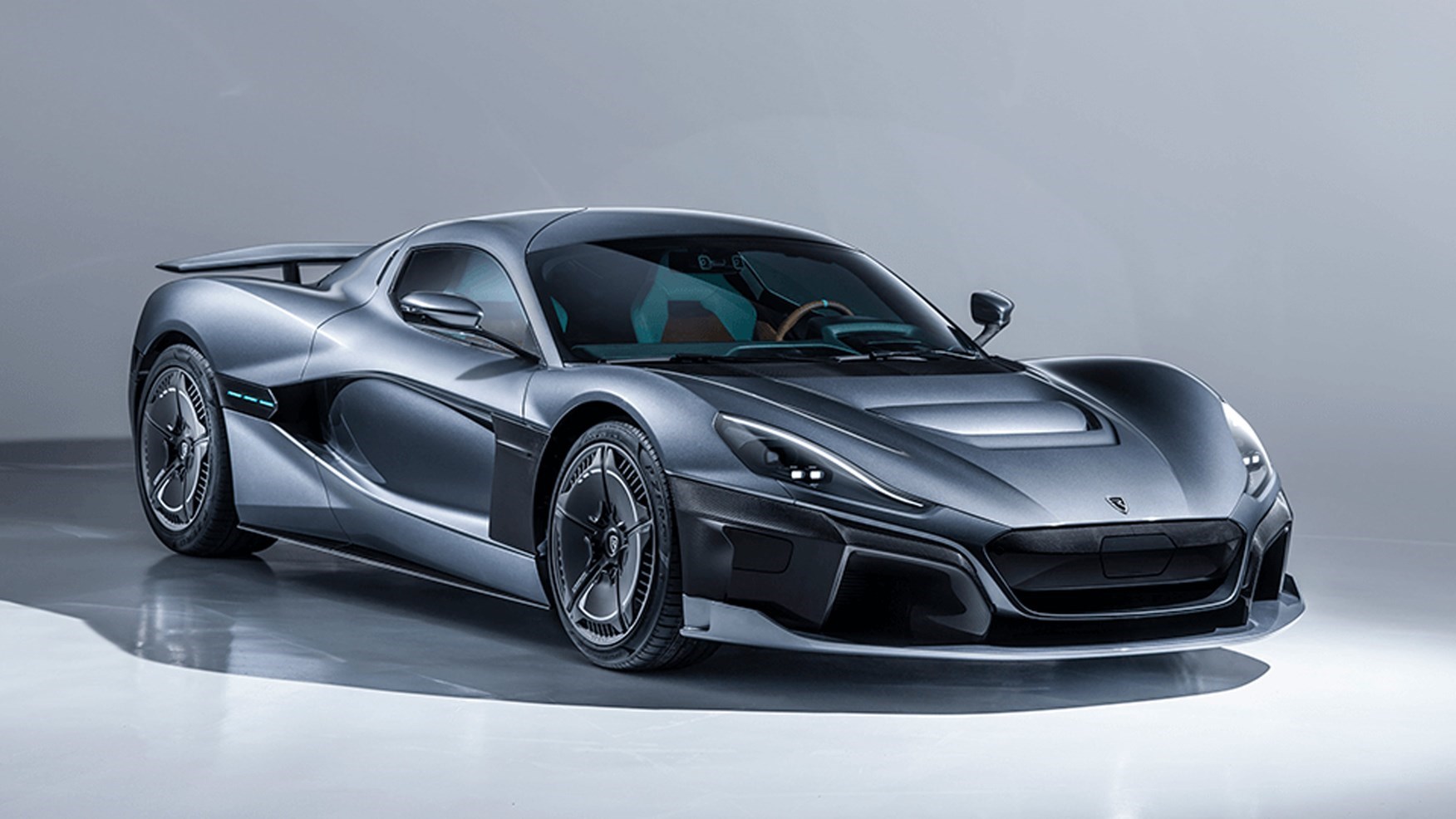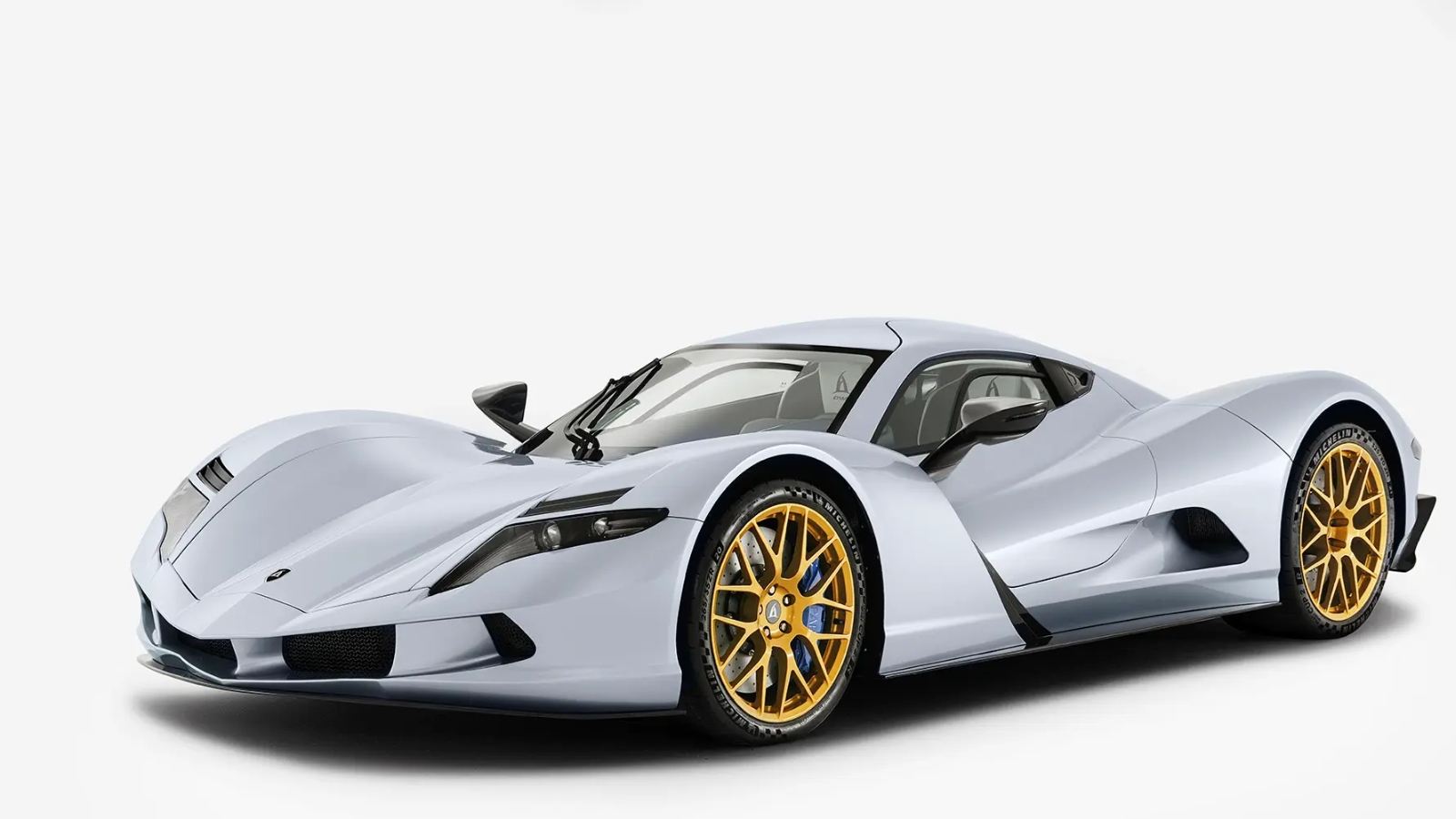Something interesting is happening in the automotive world that’s making supercar manufacturers nervous. The traditional formula that made these exotic machines desirable is crumbling, and it all comes down to one game-changing factor: electric powertrains.
The $68,000 Reality Check
Walk into a Hyundai dealership today, and you can drive home with an Ioniq 5 N that produces 641 horsepower and rockets from 0-60 mph in 3.4 seconds. The price? Just under $70,000. Now imagine explaining to someone why they should spend an additional $150,000 for a supercar that might only be half a second quicker.
This scenario perfectly illustrates the challenge facing electric supercar makers. When a family hatchback can deliver performance that would have been unthinkable outside of exotic car territory just a few years ago, the value proposition of expensive electric supercars becomes questionable.
How Electric Motors Changed Everything
The Death of the Performance Paywall
Traditional combustion engines created natural barriers to performance. Want more power? You needed more cylinders, turbochargers, or sophisticated engineering. These components cost serious money to develop and manufacture, allowing automakers to charge premium prices for incremental performance gains.
Electric motors obliterated this business model. An electric powertrain doesn’t care about cylinder counts or complex forced induction systems. Raw power becomes surprisingly affordable to produce, fundamentally shifting what performance means in the automotive landscape.
The Democratization of Speed
This shift represents something unprecedented in automotive history. Performance that was once reserved for the wealthy is now accessible to mainstream buyers. The technology that powers a $2 million hypercar isn’t dramatically different from what drives a reasonably priced electric vehicle.
What Supercar Makers Are Saying
The industry leaders aren’t ignoring this trend. Corvette’s leadership has acknowledged that traditional 0-60 metrics become “meaningless” when discussing electric vehicles. They recognize that an electric Corvette would need to offer engagement beyond mere acceleration numbers.
| Challenge | Impact on Supercars |
|---|---|
| Affordable Performance | Mass-market EVs match supercar acceleration |
| Technology Democratization | Exclusive features become common |
| Emotional Connection | Loss of engine sound, smell, and personality |
| Value Proposition | Harder to justify premium pricing |
Meanwhile, hypercar manufacturers like Rimac have openly discussed difficulties selling their electric offerings. Companies such as Koenigsegg and Pagani report similar feedback from their clientele – customers simply aren’t interested in battery-powered hypercars.
The Personality Problem
Missing the Soul
Beyond performance metrics, electric supercars face another hurdle: personality. Traditional supercars captivate enthusiasts through sensory experiences – the roar of a V12, the smell of racing fuel, the mechanical symphony of a high-revving engine. These elements create emotional connections that justify premium prices.
Electric vehicles, regardless of their performance capabilities, can’t replicate these visceral experiences. While they might simulate engine sounds through speakers, the authenticity that drives passion among car enthusiasts remains elusive.
The Software-Defined Future
As vehicles become increasingly software-driven, another challenge emerges. Future cars might be able to mimic the characteristics of different vehicles through digital programming. This capability could further erode the uniqueness that supercar buyers seek.
Rethinking Value in the Electric Age
Range Becomes the New Currency
The automotive industry might be heading toward a fundamental shift in how cars are priced. Instead of paying for power, consumers might pay for range. This transition could create scenarios where a smaller battery pack results in a lighter, faster, and cheaper vehicle – a proposition that traditional supercar makers struggle to counter.
The Hyundai Example
The Ioniq 5 N perfectly demonstrates this concept. If Hyundai offered the same vehicle with a smaller battery pack, they could potentially create a lighter, faster, and more affordable performance car. This approach challenges the entire foundation of luxury automotive pricing.
What This Means for Car Enthusiasts
For everyday drivers, this democratization of performance represents an exciting opportunity. Access to supercar-level acceleration without supercar prices opens new possibilities for automotive enjoyment.
However, for those who appreciate the craftsmanship, exclusivity, and emotional appeal of traditional supercars, the electric transition presents mixed feelings. While the performance is undeniably impressive, something intangible might be lost in the process.
The Survival Question
Some manufacturers in the supercar segment may not survive the electric transition. Success will likely depend on their ability to redefine value beyond traditional performance metrics. This might involve focusing on craftsmanship, exclusivity, design, or creating new forms of automotive engagement that electric powertrains enable.
The automotive landscape is evolving rapidly, and electric supercars must find new ways to justify their existence in a world where exceptional performance becomes commonplace. Whether they succeed will determine the future of automotive luxury and exclusivity.
Frequently Asked Questions
Q: Will electric supercars become obsolete?
A: Not necessarily, but they’ll need to offer value beyond just performance, such as exclusivity, craftsmanship, or unique experiences.
Q: Why don’t customers want electric hyper cars?
A: Many buyers miss the emotional connection provided by engine sounds, smells, and mechanical personality that combustion engines offer.
Q: Are affordable EVs really as fast as supercars?
A: Many mainstream electric vehicles now match or exceed traditional supercar acceleration times, though other performance aspects may differ.
Also Read:-Jaecoo J7 SHS Covers 1000km Melbourne to Sydney on One Tank
